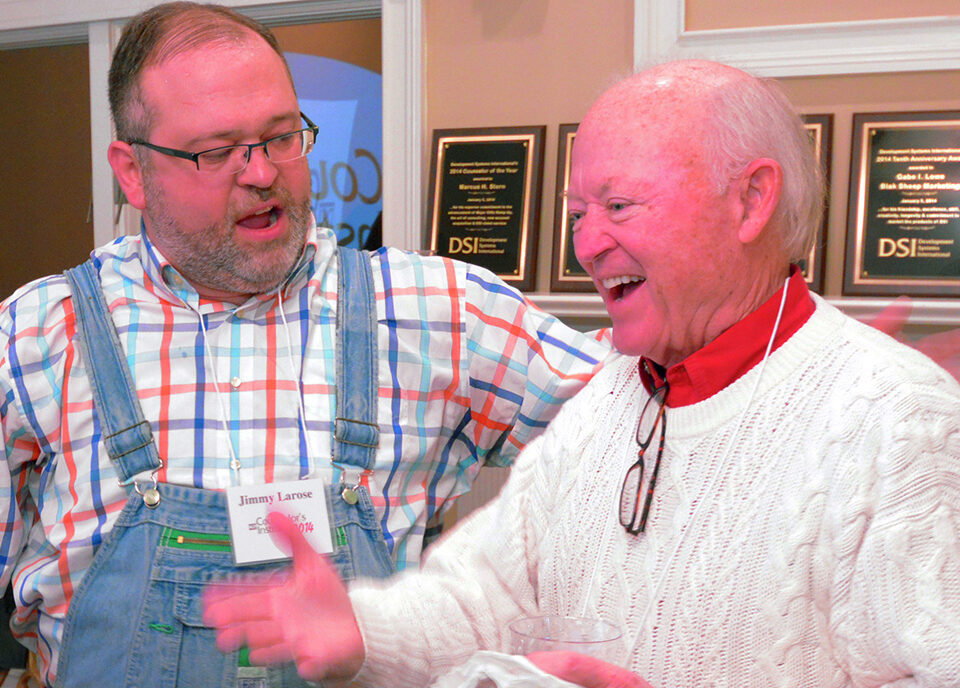Lindell Recovery Network Jimmy LaRose – Fastest Four Minutes on YouTube is Jimmy’s take on Christian Living.
St. Augustine is a fourth century philosopher whose groundbreaking philosophy infused Christian doctrine with Neoplatonism. He is famous for being an inimitable Catholic theologian and for his agnostic contributions to Western philosophy. He argues that skeptics have no basis for claiming to know that there is no knowledge. In a proof for existence similar to one later made famous by René Descartes, Augustine says, “[Even] If I am mistaken, I am.” He is the first Western philosopher to promote what has come to be called “the argument by analogy” against solipsism: there are bodies external to mine that behave as I behave and that appear to be nourished as mine is nourished; so, by analogy, I am justified in believing that these bodies have a similar mental life to mine. Augustine believes reason to be a uniquely human cognitive capacity that comprehends deductive truths and logical necessity. Additionally, Augustine adopts a subjective view of time and says that time is nothing in reality but exists only in the human mind’s apprehension of reality. He believes that time is not infinite because God “created” it.

Lindell Recovery Network Jimmy LaRose – Fastest Four Minutes on YouTube
Augustine tries to reconcile his beliefs about freewill, especially the belief that humans are morally responsible for their actions, with his belief that one’s life is predestined. Though initially optimistic about the ability of humans to behave morally, at the end he is pessimistic, and thinks that original sin makes human moral behavior nearly impossible: if it were not for the rare appearance of an accidental and undeserved Grace of God, humans could not be moral. Augustine’s theological discussion of freewill is relevant to a non-religious discussion regardless of the religious-specific language he uses; one can switch Augustine’s “omnipotent being” and “original sin” explanation of predestination for the present day “biology” explanation of predestination; the latter tendency is apparent in modern slogans such as “biology is destiny.”
The earliest of the extant works against the Donatists present the same views of the Church and its sacraments which Augustine developed later. The principles which he represented in this conflict are merely those which, in a simpler form, had either appeared in the anti-Donatist polemics before his time or had been part of his own earlier belief. What he did was to formulate them with more dogmatic precision,. and to permeate the ordinary controversial theses with his own deep thoughts on unitas, caritas, and inspiratio gratice in the Church, thoughts which again trace their origin back to his Neoplatonic foundations. In the course of the conflict he changed his opinion about the methods to be employed; he had at first been opposed to the employment of force, but later came to the ” Compel them to come in ” point of view. It may well be doubted, however, if the practical struggle with the schismatics had as much to do with Augustine’s development as has been supposed. Far more weight must be attached to the fact that Augustine had become a presbyter and a bishop of the catholic Church, and as such worked continually deeper into the ecclesiastical habit of thought. This was not hard for the son of Monnica and the reverent admirer of Ambrose. His position as a bishop may fairly be said to be the only determining factor in his later views besides his Neoplatonist foundation, his earnest study of the Scripture, and the predestinarian conception of grace which he got from this. Everything else is merely secondary. Thus we find Augustine practically complete by the beginning of his episcopate-about the time when he wrote the Confessiones. It would be too much to say that his development stood still after that; the Biblical and ecclesiastical coloring of his thoughts becomes more and more visible and even vivid; but such development as this is no more significant than the effect of the years seen upon a strong face; in fact, it is even less observable here-for while the characteristic features of his spiritual mind stand out more sharply as time goes on with Augustine, his mental force shows scarcely a sign of age at seventy. His health was uncertain after 386, and his body aged before the time; on Sept. 26, 426, he solemnly designated Eraclius (or Heraclius) as his successor, though without consecrating him bishop, and transferred to him such a portion of his duties as was possible. But his intellectual vigor remained unabated to the end. We see him, as Prosper depicts him in his chronicle, ” answering the books of Julian in the very end of his days, while the on-rushing Vandals were at the gates, and gloriously persevering in the defense of Christian grace.” In the third month of the siege of Hippo by the barbarian invaders, he fell ill of a fever and, after lingering more than ten days, died Aug. 28, 430. He was able to read on his sick-bed; he had the Penitential Psalms placed upon the wall of his room where he could see them. Meditating upon them, he fulfilled what he had often said before, that even Christians revered for the sanctity of their lives, even presbyters, ought not to leave the world without fitting thoughts of penitence.
Lindell Recovery Network Jimmy LaRose – Fastest Four Minutes on YouTube was first posted at JimmyLaRose.com
For more articles like Lindell Recovery Network Jimmy LaRose – Fastest Four Minutes on YouTube VISIT HERE


